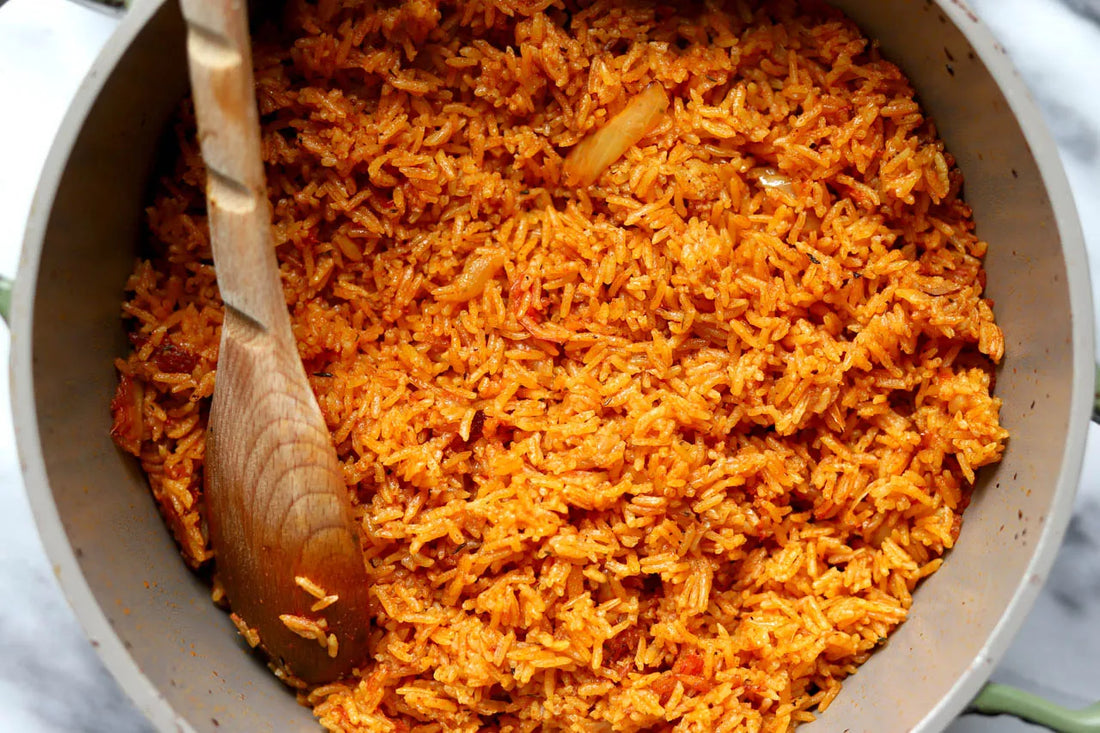
Jollof Rice: From Culinary Heritage to Global Influence
Yinka's FoodsHumble Beginnings
Jollof rice is often hailed as the crown jewel of Nigerian cuisine, a dish that holds a special place in the hearts and palates of Nigerians' both at home and the diaspora. Jollof rice is iconic, characterised by its vibrant colour, tantalising aroma, and explosive flavours. This dish has a rich heritage that is deeply rooted in Nigerian culture and history.
Jollof rice has gained international recognition, becoming a symbol of African culinary prowess and a beloved dish across the globe.
Historically, the origins of Jollof rice can be traced back to the ancient empires of West Africa, particularly the Jolof Empire (present-day Senegal) from which it derives its name. It was in Nigeria, with its diverse ethnic groups and culinary traditions, that Jollof rice truly flourished and evolved into this beloved dish. Each region in Nigeria has its own variation of Jollof rice, reflecting the unique ingredients and cooking techniques within the local communities.
Key ingredients
The key components of Jollof rice includes rice, tomatoes, onions, ginger, scotch bonnet and a blend of spices such as thyme and curry. When these ingredients are cooked and the flavours amalgamate these unique bold flavour profile's develop. Meat, fish, or vegetables are often used as accompaniments to enhance the dish.
Beyond its culinary appeal, Jollof rice holds cultural significance in Nigerian society. Served at weddings, festivals, and other celebratory occasions, it symbolises unity, abundance and hospitality. The act of preparing and cooking Jollof rice brings people together and fosters the foundation of community and belonging.
Global recognition
In recent years, Jollof rice has gained prominence on the world stage. Its popularity has surged globally, thanks in part to the growing interest in African cuisine and the influence of Nigerian culture abroad. From street food vendors in Lagos to upscale restaurants in London, Jollof rice has captured the hearts and taste buds of people from diverse backgrounds.
Social media has played a significant role in amplifying the popularity of Jollof rice, with hashtags such as #JollofWars sparking lively debates and discussions about the best preparation methods, regional variations and national variations (stay tuned we are going to tackle this debate). This online discourse has not only promoted cultural exchange but has also fuelled interest in exploring Nigerian cuisine and culinary traditions.
Jollof rice has become a symbol of cultural pride and identity for many Africans in the diaspora. It serves as a reminder of their roots and heritage, connecting them to their ancestral homeland through the shared experience of enjoying a beloved dish.
Yinka's say
Jollof rice is more than just a meal; it is a celebration of Nigeria's rich culinary heritage and a testament to the country's cultural diversity. Its global popularity underscores the universal appeal of African cuisine and its ability to bring people together across borders and continents. Jollof rice perfectly reflects the vibrant personality, love and warmth of the Nigerian people.
If this article has got you salivating and you want to try Jollof rice for the first time but you're not sure where to start, then give Aunty Yinka's Jollof sauce a try.
Through our love of food and flavours we capture the essence of our culture. Our mission is to satisfy the hearts of hungry Nigerian's and we are confident we can deliver on this.
